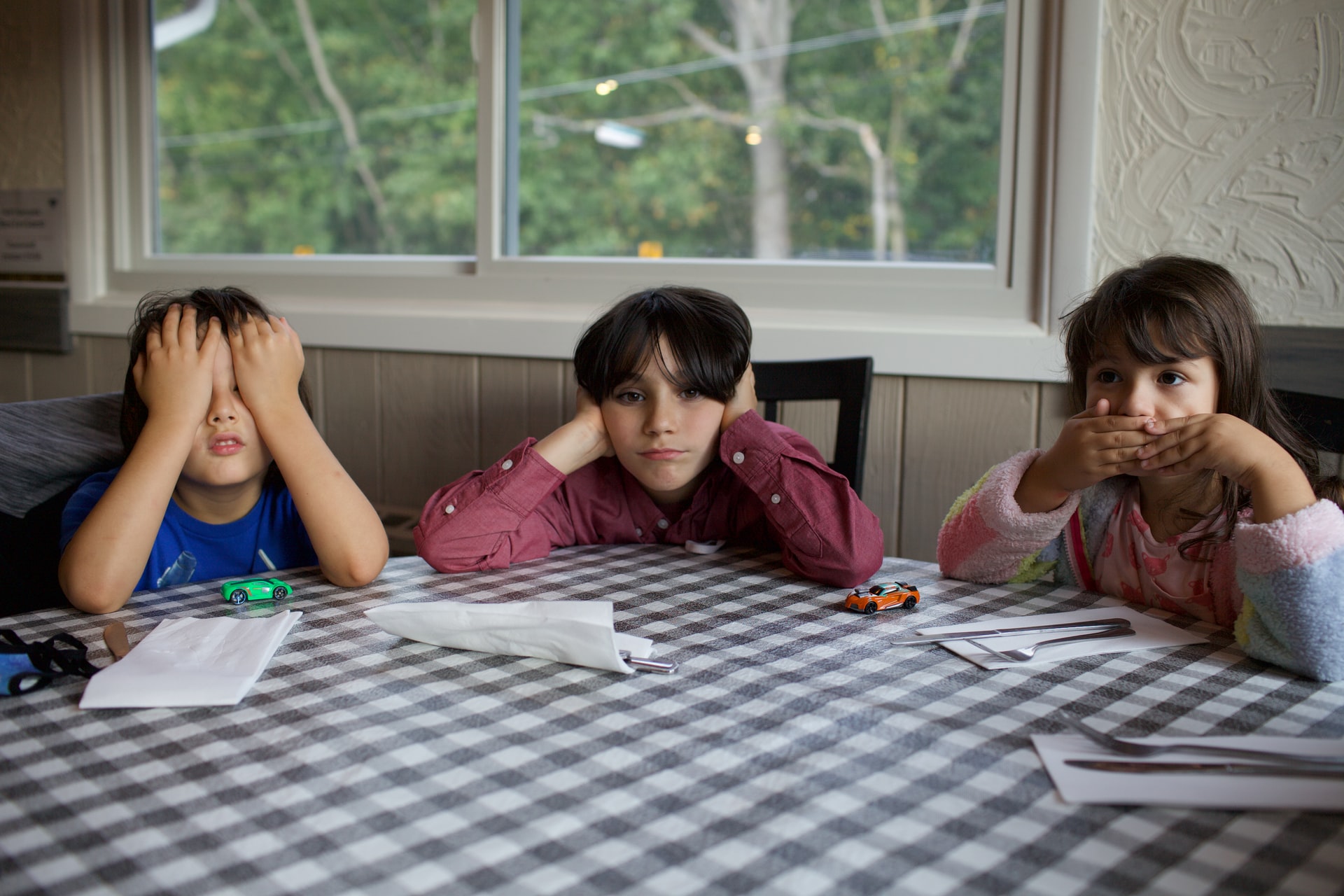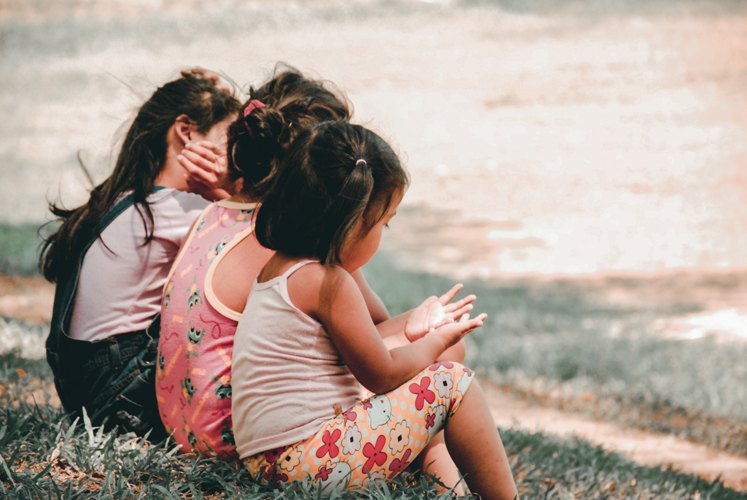Watching a child grow up can be beautiful, nerve-wracking, frustrating, and wonderful all at the same time. As they progress along their developmental journeys, kids will often go through phases of behavior that make parents ask, “When will they outgrow this?” But what should parents do when a particularly difficult behavioral or emotional stage doesn’t go away? At what point should parents be concerned about their kids’ psychological health?
 While most concerning behaviors don’t call for a major intervention, there are times when a child’s problem behavior surpasses what is normal for their developmental stage, or their altered emotional state lasts longer than a couple of weeks. In these cases, parents may begin to wonder if their child is dealing with a mental health condition rather than the typical difficulties of growing up.
While most concerning behaviors don’t call for a major intervention, there are times when a child’s problem behavior surpasses what is normal for their developmental stage, or their altered emotional state lasts longer than a couple of weeks. In these cases, parents may begin to wonder if their child is dealing with a mental health condition rather than the typical difficulties of growing up.
While only a mental health professional can evaluate and diagnose a child, it is important that parents trust their instincts and seek more information when their child may be struggling. This article will define some common kids’ mental health concerns, list some signs and symptoms that parents can watch for, and offer some information about how to move forward in supporting your child.
What are the most common mental health conditions in kids?
Most common childhood psychological conditions fall into one of two categories: neurodivergent conditions or internalizing disorders. Neurodivergent conditions are psychological conditions that cause the brain to think, learn, or process stimuli in ways other than what is considered typical. There are also internalizing disorders, which are primarily rooted in an individual’s inability to process or regulate thoughts and emotions in the same way that most people do.
Attention Deficit Hyperactivity Disorder (ADHD) is among the most commonly diagnosed neurodivergent conditions in children. This condition can cause a child to have more difficulty staying focused, controlling their impulses, and being calm and still than other children their age. Some children with ADHD present with more inattentive symptoms while others present with more hyperactive symptoms.
Autism Spectrum Disorders are another common category of neurodivergent conditions. These conditions primarily affect the way children communicate and relate with others. Children on the Autism Spectrum will usually start showing symptoms in early childhood.
Anxiety Disorders are internalizing disorders that cause children to experience persistent feelings of worry, stress, fear, or unease. In anxiety disorders, these fears are so intense that they impact a child’s ability to participate fully in their daily life. Symptoms of an anxiety disorder rise above typical childhood fears in that they are persistent, long-lasting, and impact multiple areas of a child’s life.
 Post-Traumatic Stress Disorder (PTSD) is an anxiety disorder that develops after a child has experienced or witnessed violence, abuse, a traumatic injury, or any other terrifying event. PTSD can cause a child to relive distressing memories, have persistent nightmares, exhibit disruptive behaviors, or experience other acute anxiety symptoms.
Post-Traumatic Stress Disorder (PTSD) is an anxiety disorder that develops after a child has experienced or witnessed violence, abuse, a traumatic injury, or any other terrifying event. PTSD can cause a child to relive distressing memories, have persistent nightmares, exhibit disruptive behaviors, or experience other acute anxiety symptoms.
Depression and Mood Disorders are other kinds of internalizing mental health conditions that cause a child to have difficulty regulating their moods. Depression is characterized by persistent, long-term sadness or lowness accompanied by irritability, lethargy, or loss of interest in relationships and activities that used to bring joy.
Bipolar disorder is another mood disorder that causes a child’s mood to swing between extremes, with periods of depression and periods of emotional and energetic highs often including risky or unsafe behavior.
Eating Disorders are a class of childhood psychiatric disorders that don’t fall neatly into either the neurodivergence or internalizing disorder category. These disorders are characterized by extreme dieting or exercising and are often motivated by a preoccupation with achieving an ideal body type and a distorted view of one’s own body.
What are some signs a child is struggling with their psychological health?
There is a wide amount of variation in developmentally appropriate behavior for children. Depending on the child and the stage, it can be difficult to determine what behavior should be attributed to the child’s latest “phase” and what behavior may indicate a deeper problem.
Generally, parents are in the best position to carefully observe their kids and to know when they are acting out of character. If you are concerned about your kids’ mental health, here is a list of some signs.
Emotional signs
- Drastic changes in mood, behavior, or personality
- Persistent sadness or lowness that lasts longer than two weeks
- Extreme irritability
- Persistent fears and worries
- Repeated nightmares
- Disinterest in relationships or activities that used to bring joy
- Preoccupation with death or suicide
Behavioral and social signs
- Persistently defiant, disobedient, or aggressive behavior
- Frequent temper tantrums
- Avoidance of social interactions and relationships
- Lower than normal academic performance
- Self-harming behaviors
- Abuse of alcohol or drugs
- Obsessive dieting or exercising
- Repetitive actions or tics
Physical signs
- Aches, pains, or nausea that have no physical explanation
- Fidgeting or inability to sit still
- Significant changes in eating or sleeping habits
- The return of previously outgrown issues such as bed-wetting
- Inability to concentrate
- Panic attacks
- Lack of energy or lethargy
- Periods of highly elevated energy and mood
If you are concerned about your child and suspect they may be struggling, make a list of the behaviors that concern you and keep track of how often you observe them. This information can help you have a concrete way to talk about your concerns with your child’s health care team.
What should parents do when concerns arise about their child’s mental health?

First, take a step back and really observe your child’s concerning behaviors. Are they persistent and long-lasting? Do they interfere with your child’s ability to function in daily life? Do these behaviors present in multiple settings or are they just occurring in a specific environment? Answering these questions may ease your concerns. Even if that is not the case, the answers to these questions will be able to help guide your next steps.
If you are still observing concerning behaviors in your child, speak to that child about your worries. Stick to your main concerns and keep them brief; you don’t want to overwhelm them. The idea is to give your child a chance to speak about what they are experiencing.
Try not to interrupt and let them speak for as long as they want to. If your child isn’t willing to speak to you, try asking other adults in their life to speak with them and give them a chance to open up. Ultimately, be sure to let your child know you will face whatever difficulties they are experiencing together.
Next, share your observations and worries with your child’s primary care doctor. Be as detailed as possible. Name specific behaviors that concern you and discuss how frequently you’ve observed those behaviors.
 Your child’s doctor should be knowledgeable about what behaviors are and aren’t appropriate for the developmental stage of your child. They can help you determine if any further action needs to be taken to support your child’s mental health. This doctor should also be able to run any necessary tests and rule out any physical or neurological causes for your child’s symptoms.
Your child’s doctor should be knowledgeable about what behaviors are and aren’t appropriate for the developmental stage of your child. They can help you determine if any further action needs to be taken to support your child’s mental health. This doctor should also be able to run any necessary tests and rule out any physical or neurological causes for your child’s symptoms.
If there is no physical explanation for the concerning behaviors and these behaviors are outside of what is normal for your child’s age group, your family will likely be referred to a mental health professional for evaluation and possible diagnosis.
How can you support your kid’s mental health?
Parents can support the mental health of their children by being a participant in their children’s lives and by keeping the lines of communication open. Let your child know you are there for them in whatever ways they need you to be. Encourage your children to speak with you about what troubles them. Really listen and let them know that you understand how their challenges are affecting them.
Trust your instincts when you are concerned for your kids’ psychological well-being. At the end of the day, you know your child better than anyone else, so don’t wait to get help if you are worried for your child.
Counselors, school psychologists, and therapists are all trained and able to support children and give them the tools they need to cope with any number of mental and emotional concerns. Decide which resources will work best for your family and start getting the support you and your child need today.
“Sitting in the Leaves”, Courtesy of Marcus Wallis, Unsplash.com, CC0 License; “See no evil, hear no evil, speak no evil.”, Courtesy of Keren Fedida, Unsplash.com, CC0 License; “Three Amigas”, Courtesy of Charlein Gracia, Unsplash.com, CC0 License; “Friends”, Courtesy of Edward Cisneros, Unsplash.com, CC0 License






